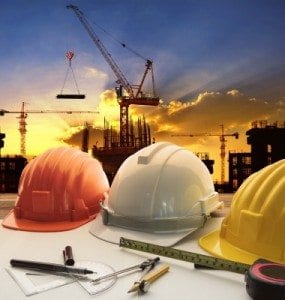MBTI® Test ENTP Industrial Health and Safety Engineers
Strong Interest Inventory® General Occupational Theme Code: Investigative, Conventional, Realistic (ICR)
According to Hammer (1996), Myers-Briggs test (MBTI test) Extraverted-Intuitive-Thinking-Perceiving (ENTP) personality types need to be constantly challenged in the workplace to feel comfortable in their career roles. Their strong analytical and technical personality preferences coupled with their creativity and problem solving can often help them in an Industrial Health and Safety Engineering career.
Industrial health and safety engineers are responsible for planning and implementing safety programs in a variety of settings, especially in places like hospitals, factories, large corporations, and other settings where people are working closely together, often around harmful chemicals. Industrial health and safety engineers have to maintain an up-to-date knowledge of safety policies and practices, and develop and implement safety policies at their place of work. They may also need to make changes to current policies or make recommendations to administrators involving such practices. On the more technical side, implementing such policies might involve installing safety devices or teaching others to do the same. In case of an accident or misconduct, industrial health and safety engineers may need to investigate their causes, as well as possible ways to implement preventative measures to reduce the likelihood of a repeat incident.
Successful industrial health and safety engineers use a range of tools and technologies, including air pollutant sampling measures and pumps to ascertain the safety of air. They may also need reaction time simulators or strength evaluation systems to ensure that their firm’s employees are able to adequately react in case of an emergency. Recording this and other data generally involves analytical software, including computational fluid dynamics software (SFD software), and other programs that can calculate and predict the physical static and dynamic characteristics of a workplace. Industrial health and safety engineers may also use computerized design software to develop better safety precautions, or even computerized training software to introduce other employees to new company safety policies.
Because developing, normalizing, and implementing such interventions requires a high level of both technical and interpersonal knowledge, industrial health and safety engineers need a solid foundation in science, math, and technology, including physics, chemistry, and biology. They also need a basic understanding of education and training, as well as of legal matters so they can stay abreast of current changes in regulations and standards for safety nation-wide. Finally, in order to communicate with their firm’s employees, their own team, as well as their firm’s administrative partners, industrial health and safety engineers need strong communication skills in the English language in both written and oral communication.
-
MBTI® Career Report
Price: $62.95 Buy NowDIGITAL DELIVERY
- Receive an in-depth 10-page report on your occupational matches
- Explore your preferred work tasks, environments, and industry matches
- Assessment sent digitally within 2-3 business hours of purchase
Industrial health and safety engineers professionally solve problems and are constantly weighing the costs and benefits of different ways to optimize the functioning of their firm. They need to consider not only the needs of their firm’s employees, but also those of the administrative partners and limitations in the production itself. Therefore, they need to have strong decision making and problem solving skills, as well as the ability to quickly evaluate and analyze situations. Developing these skills can take years of on-the-job training in addition to a bachelor’s degree. There are some Industrial health and safety engineers who have graduate degrees, and some who have high school diplomas, but the majority have undergraduate bachelor’s degrees.
ENTP’s are ideal for careers as Industrial Health and Safety Engineers because they excel under pressure and when faced with constant challenges. They find the fast-paced work environment exhilarating, and thrive in a way that few can.
Below are some employment trends for Industrial health and safety engineers:
- Median wage: $37.89 hourly, $78,820 annually
- Employment: 24,000 employees
- Projected growth (2012-2022): average (8%-14%)
- Projected job openings (2012-2022): 9,700
Visit Our MBTI® About Page and Our ENTP Personality Type Page For Detailed Information on The ENTP Personality Type
Visit Our Strong Interest Inventory® Resource Page To Learn About The ESC GOT
Click on one of these corresponding popular ENTP Careers for detailed information including Career Stats, Income Stats, Daily Tasks and Required Education: Advertising Sales Agent, Economist, Financial Analyst, Food Scientist & Technologist,General & Operational Manager, Human Resources Manager, Industrial Health & Safety Engineering, Insurance Adjuster, Examiner, or Investigator, Insurance Sales Agent, and Landscape Architect.
Explore additional information that delves deeper into the ENTP Personality Type by examining various personality and career based subjects:
- Myers-Brigg Test ENTP Personality Type and Innovation Blog
- Myers-Briggs Test ENTP Personality Type and Project Management Blog
- Myers-Briggs Test ENTP Personality Type and Emotional Intelligence Blog
- Myers-Briggs Test ENTP Personality Type and Leadership Blog
- Myers-Briggs Test ENTP Personality Type and Communication Blog
Click on a link below to read more about different MBTI Personality Types
| ISTJ | ISFJ | INFJ | INTJ | ESTP | ESFP | ENFP | ENTP |
| ISTP | ISFP | INFP | INTP | ESTJ | ESFJ | ENFJ | ENTJ |
References:
Bureau of Labor Statistics wage data and 2012-2022 employment projections Onetonline.org
MBTI® Type Tables for Occupations, 2nd Edition. Schaubhut, N. & Thompson, R. (CPP, 2008)
Introduction To Type and Careers, Hammer, A. (CPP, 1996)


